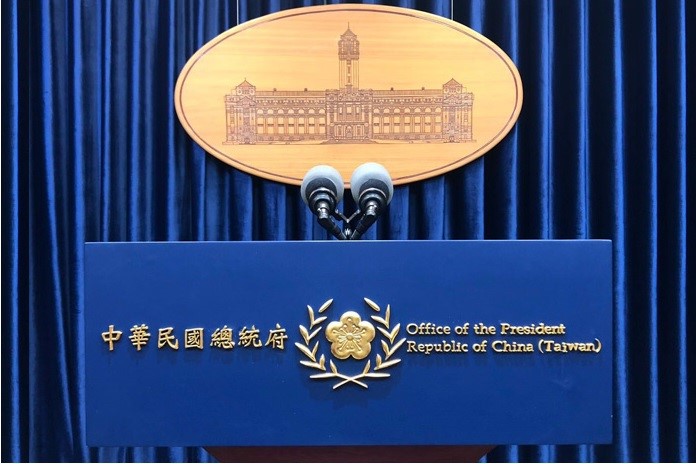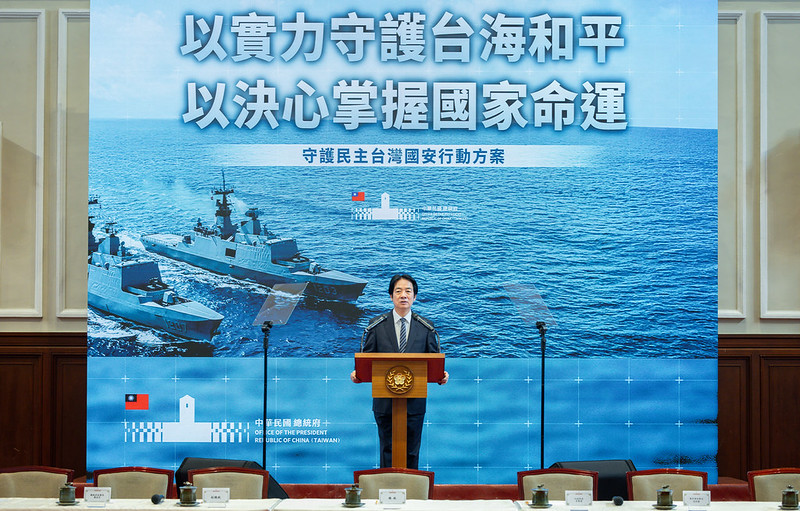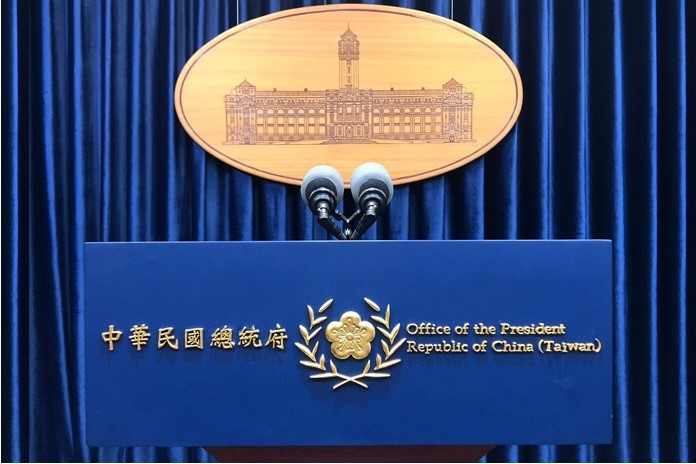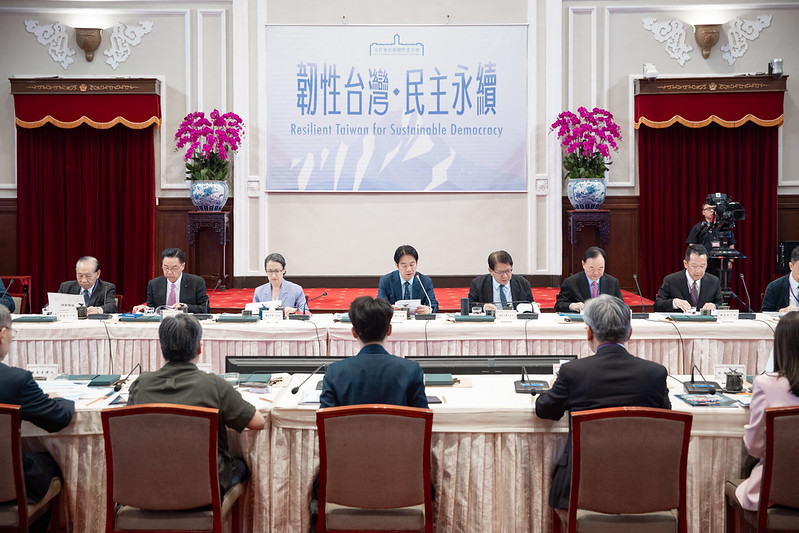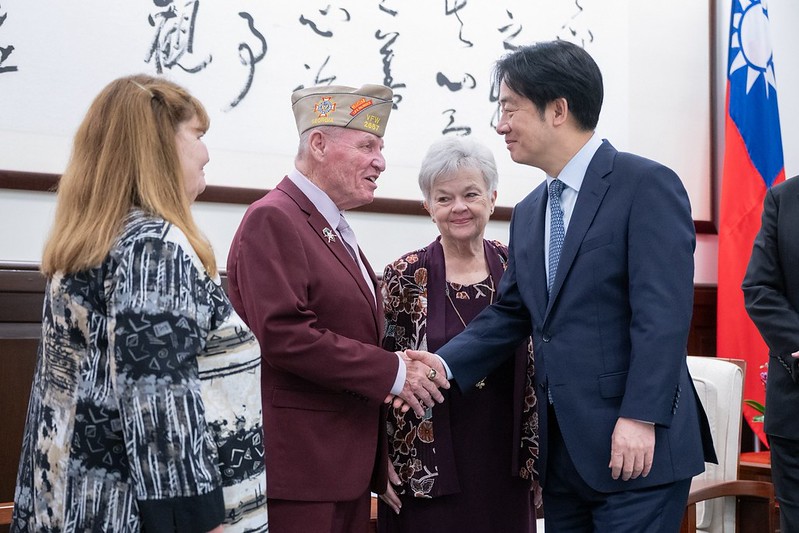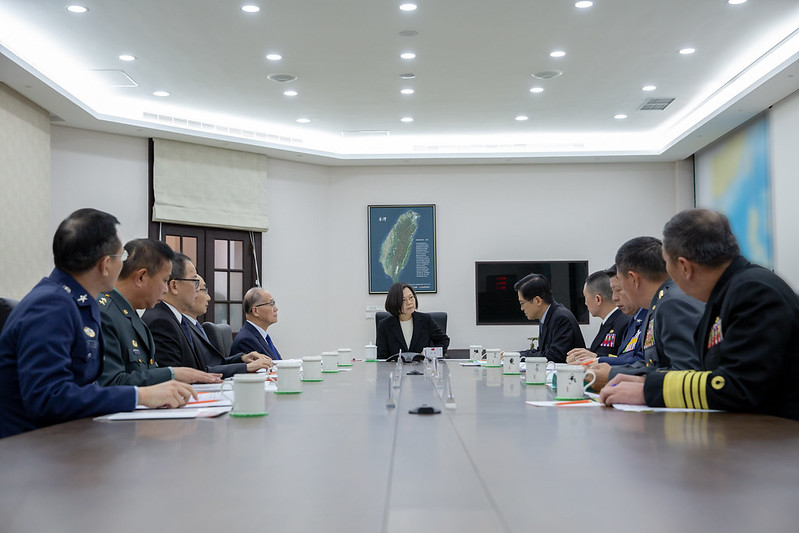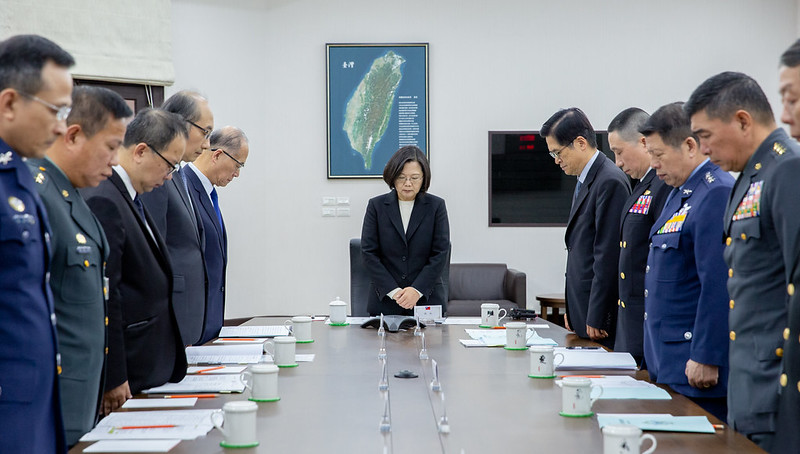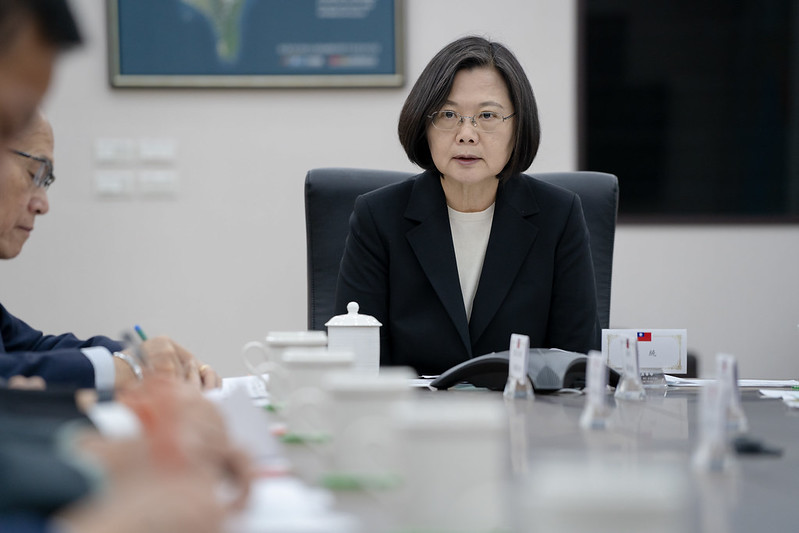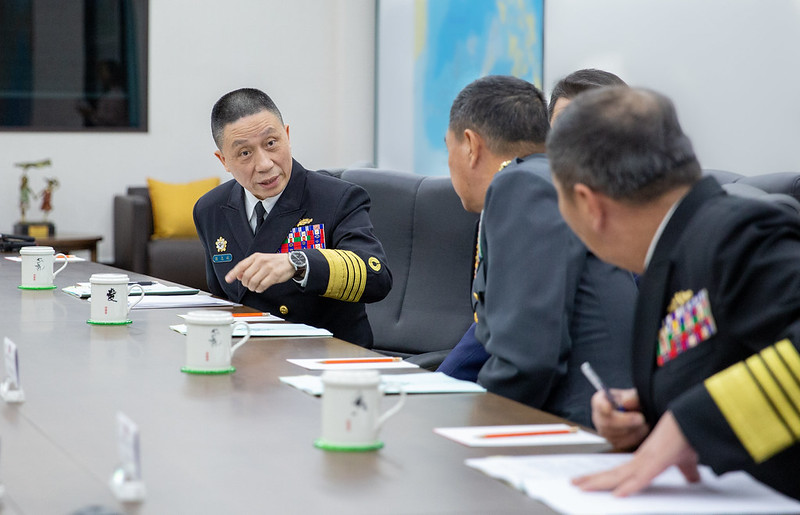News & activities
 News releases
News releases
President Tsai Ing-wen convened a meeting at the Presidential Office on the morning of January 3 to discuss national defense and military affairs, stating that although the recent helicopter crash is a great national loss, national security requires constant vigilance. She then asked high-ranking officers of the armed forces to ensure stable military and public morale, security in and around the Taiwan Strait, and complete equipment inspections.
The following is a translation of the president's remarks:
As a result of yesterday's unfortunate helicopter crash, some outstanding comrades lost their lives in the line of duty. Before we begin this meeting, I ask that you all please rise, so that together, we can observe a minute of silence to honor our fallen brothers.
This accident is a great national loss. In addition to expressing our sadness and grief, I have already directed that we need to provide compensation and medical assistance of high quality, liberally, and in a timely manner. I want to remind everyone, however, that national security requires constant vigilance on a daily basis. As important military personnel, you must ensure that national defense affairs operate as usual to stabilize military and public morale.
Before we begin the meeting, I would like to give you three tasks:
First, we must ensure stable military and public morale.
Chief of the General Staff Shen [Yi-ming] (沈一鳴) was beloved by his brothers and sisters in uniform, and he maintained outstanding military discipline. The best way to honor his memory is to stand strong at our posts and work together to safeguard our national security. Our national defense affairs have a sound division of labor and delegation system. I ask that everyone do their utmost under the leadership of Minister of National Defense Yen [Teh-fa] (嚴德發) to ensure normal national defense operations and stabilize military morale.
Second, we must ensure security in and around the Taiwan Strait.
I ask that everyone remain on high alert at this time, closely follow military movements in the area surrounding the Taiwan Strait, and react and deploy quickly to ensure security in and around the Taiwan Strait.
Third, we must ensure complete equipment inspections.
Once you return to your posts, I ask that you call for all troops to carry out thorough and complete equipment inspections and maintain readiness. We must maintain constant vigilance.
Chief of the General Staff Shen was our brother, and we are all saddened by his passing. But as leaders of the armed forces, we have a responsibility to stabilize military and public morale. I ask that all of you strictly oversee and carry out these three tasks to safeguard Taiwan's security.
Among those in attendance were National Security Council Secretary-General David. T. Lee (李大維), Defense Minister Yen, Vice Chief of the General Staff and Executive Officer Liu Chih-pin (劉志斌), National Security Council Advisor Chen Chun-lin (陳俊麟), National Security Council Deputy Secretary-General York Chen (陳文政), Army Commander General Chen Pao-yu (陳寶餘), and Navy Commander Admiral Huang Shu-kuang (黃曙光).
